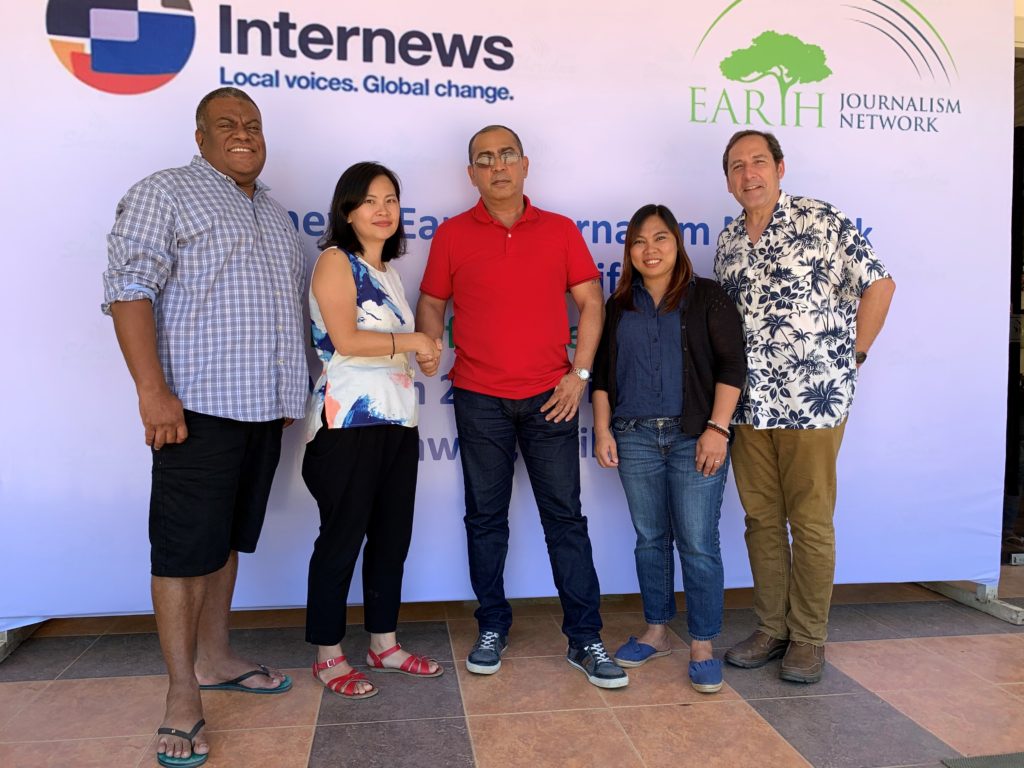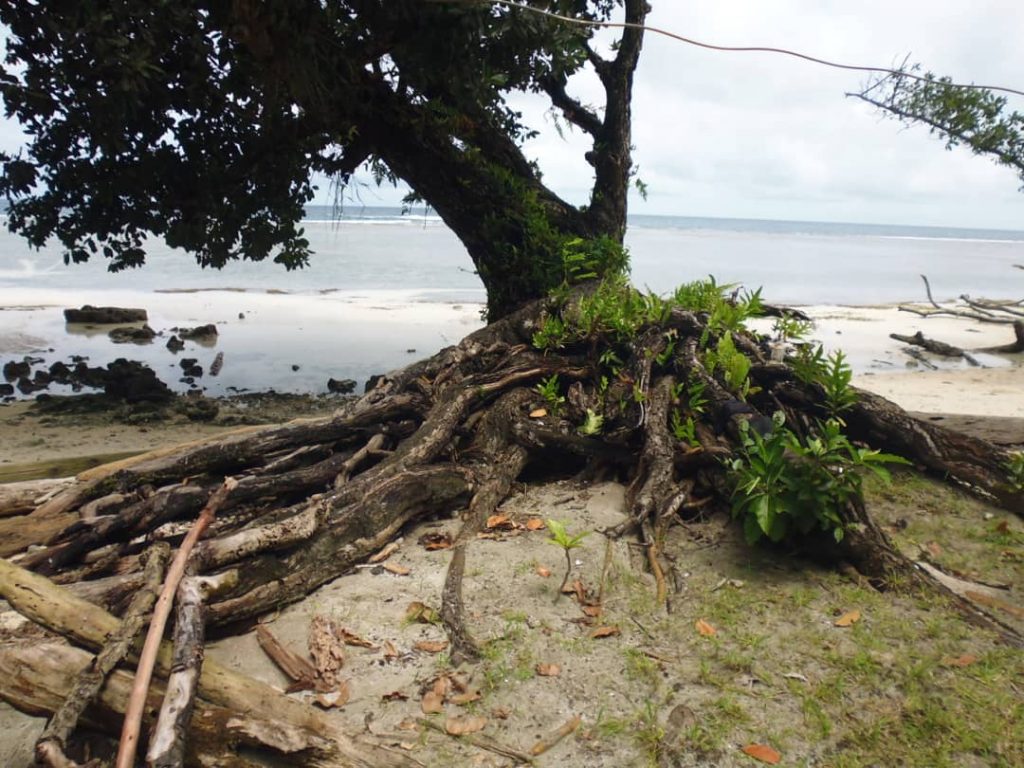
The Journalism Programme at The University of the South Pacific has won major recognition through a $US20,000 ($F42,617) grant in a boost for environmental reporting in the Pacific.
The programme was one of 14 recipients of the competitive Internews/Earth Journalism Network (EJN) Asia-Pacific and Bay of Bengal media grants, 2019.
The EJN sees the grant programme as an opportunity for media, civil society organisations and academic institutions throughout Asia-Pacific to think critically and creatively about how to build local resources for reporting climate change, natural resource management and the environment.
The winners were selected from 70 applications based on two rounds of reviews. USP Journalism was the only grantee from the Pacific.
Internews EJN Asia-Pacific project director Sim Kok Eng Amy said they were glad to partner with USP Journalism to nurture future journalists in the Pacific and equip them with the skills and knowledge to report on climate change.
“I hope that, through this project, the young journalists will develop a passion for environmental reporting, and be inspired to report on the lives of those people most affected by climate change and their resilience in tackling climate change,” Ms Amy said.
USP Journalism, which comes under the School of Language, Arts and Media (SLAM), started in 1988, with more than 200 graduates serving the Pacific and beyond in various media and communication roles.
The programme has won a number of national and regional awards for environmental reporting, including the 2010 Vision Pasifika Climate Change Media Awards by the Secretariat of the Pacific Regional Environment Programme (SPREP).
The EJN/USP Journalism project is titled, ‘Adapting to and mitigating effects of climate change and island sea level rise’. It will involve journalism students conducting climate change reporting in the Cook Islands and the Solomon Islands.
The Head of SLAM, Professor Sudesh Mishra, said climate change was the most urgent issue confronting the planet and all life on it.
“It is critical that young journalists understand the science behind climate change and the impact it has on our atmospheric commons: sea, wind, heat, rain, etc. Our region is very vulnerable to climate-related transformations, so the grant is of high significance,” Prof Mishra said.
“The region needs to produce a new breed of journalists who write on climate-related issues certainly, but who are also adequately trained to proposal short and long-term solutions.
“The new journalist should be able to read the future from the standpoint of the damaged present; journalism and climate-related activism should go together and I am hoping the grant will assist us in producing this new kind of journalism.”
USP Journalism Students Association president Kirisitiana Uluwai welcomed the inclusion of Pacific student journalists in the climate change reporting project.
“This will be a good experience for budding journalists to create awareness around a very important issue affecting the Pacific,” she said.
“The idea of regionalism will be seen through the reports generated by journalism students.”
Ms Uluwai said the project would also provide a platform for passionate young journalists in the Pacific to focus on a future of resilience as well as generate tangible discussions around the issue of climate change from the perspective of youths.
USP Journalism coordinator Dr Shailendra Singh said the grant was a boost for solidifying the foundations of environmental reporting for the future.
He stated the Pacific was in the forefront of climate change impacts, on top of various other problems, such as the rape of fisheries and forestry resources, plastic pollution and waste disposal and management.
Dr Singh stated that environmental issues in the Pacific were under-reported compared to the magnitude of the problems.

He stated that because of the smallness of the Pacific media industry, journalists were generalists by necessity, with no specific beats such as environmental journalism.
Although USP Journalism lacked resources to offer specific courses in environmental journalism, students reported on the environment as part of their assessed news assignments, using the expertise available at other USP faculties as resource material.
Dr Singh added that the grant would take authentic learning – the idea of incorporating the classroom with the real world – to another level, with two teams of the best student reporters sent to the Cook Islands and the Solomon Islands to report on community mitigation efforts.
The project, he said, was geared towards expanding coverage horizontally beyond Fiji, and vertically down to the grassroots level, building future capacity through student journalism.
“It will take students out of their comfort zone into new territory. Our story-focus is grassroots mitigation using traditional knowledge,” said Dr Singh.
“This covers a gap, since much of the coverage in the Pacific is based on conferences, speeches and and elite spokespersons. The stories would highlight problem-solving, rather than victimhood and helplessness, alone.”
Other grantees will undertake projects that include:
- Strengthening Thai journalists’ ability to cover transboundary environmental issues in neighboring countries and at multi-stakeholder forums.
- Providing story grants for journalists to investigate the impacts of climate change on coffee cultivation in Indonesia.
- Establishing an online platform to allow for information exchanges and collaboration between local journalists, farmers, youth and women’s unions in the Mekong Delta.




